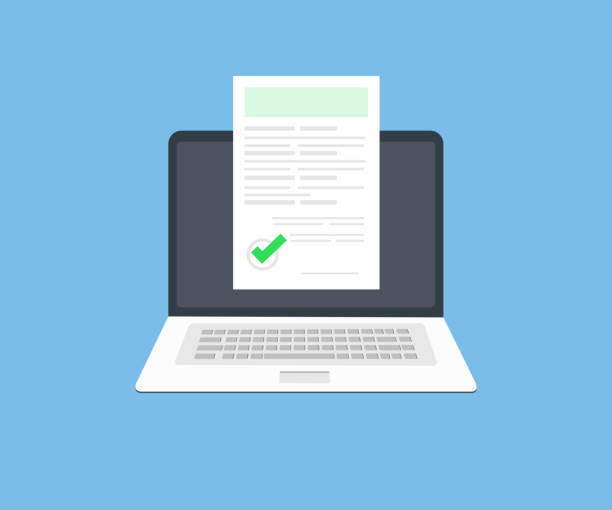The rise in digital technologies has led to innovations in how fraud and crime are committed. Even though document falsification and forgery is not new fraud technique, it has evidently innovated because of technological aid. Potential financial criminals and fraudsters scam organizations by submitting fake or counterfeit documents that are unrecognizable. Hence, multi-sectoral organizations seek automated, high-tech solutions to identify false documents. A fake document checker is one such service that allows them to detect anomalies in customers’ records.
Document Verification – A Significant Step in KYC/KYB/KYI Process
Document authentication is the initial step in the know-your-customer, business, and investor procedures taking place at every organization. It forms the basis of the business-client and B2B relationship. Document verification not only authenticates clients’ legitimacy but also ensures a secure and trustworthy environment by checking their government-issued documents. As per stats from 2020, fake passports accounted for up to 44 percent, the highest among other identity documents, followed by false ID cards, which stood at 28% in the United Kingdom. Such astonishing figures showcase the looming threat of falsely generated identity proofs that lead to fraud and other financial crimes. Hence, organizations must stress the urgency of relevant measures to mitigate illegal practices. This is where solutions like a fake document checker come to the rescue.
What Constitutes a Verification Document in Various Onboarding Processes?
Different organizations in financial and non-financial sectors perform their clients’ document verification. It is a compulsory process in banks, cryptocurrency firms, the health sector, real estate, the travel/tourism industry, etc. Regardless of the organizational nature, the client onboarding procedures are the same. However, they differ based on the nature of the client.
- Documents required in Know-Your-Customer
KYC is the standard and most common client onboarding process, focused on individual customers. Organizations verify the identity verification of their customers through KYC. A customer’s verification document is their government-validated ID card, driver’s license, or passport. Similarly, they should provide proof of address and source of income.
- Know-Your-Business
KYB is similar to KYC, with the only difference being that the client is a business enterprise instead of an individual and deals with B2B relations. Business firms provide their legal documents, tax statements, details of the ultimate beneficial owner, etc.
Therefore, a fake document checker is crucial in ensuring the authenticity of the provided documents during different onboarding procedures.
Know-Your-Investor Document Verification Checks
Know-your-investor is another client onboarding process similar to the KYC and KYB. As its name indicates, this procedure targets investors only. Your organization must perform mandatory document verification checks on potential investors before taking them on board. The required documents include the investor’s bank statements, tax records, money trails, source of income, legal documentation, government-authorized license, and most significantly, all details of the ultimate beneficial owner. The primary objective of KYI is to identify the risk of money laundering and associated crimes. Hence, companies must use an automated fake document checker to detect the signs of forgery in the acquired documents.
How Does a False Document Checker Work?
Multiple software-as-a-service (SAAS) companies offer solutions to aid organizations in mitigating fraud and financial crimes, such as money laundering. A fake document checker is one such software that analyzes the accuracy and authenticity of clients’ identity proofs. Organizations must distinguish between an entirely fake and a counterfeit document. The fraudster produces a paper without any legal basis or government authorization. Contrarily, forged documents are not entirely fake but have particular changes in information. For instance, false signatures, changed names, date of birth, or photographs on documents like passports, bank statements, cheques, birth certificates, etc.
An automated document authentication works by scanning the documents and capturing their contents. It instantly lets you know if the document is entirely fake or partially forged. It identifies edited or photoshopped information and checks whether a government entity has issued the document. The AI-powered fake document checker detects missing details such as seals or numbers, other hologram anomalies, and font size or style changes. Therefore, this software has become the need of the hour to ensure accuracy, security, and transparency throughout the client-business relationship. Furthermore, it is crucial for fraud mitigation and anti-money laundering compliance.
Document Checker Online Services
SaaS companies provide organizations with personalized software solutions for document verification. They deliver tailor-made fake document checker application programming interfaces to respective organizations. On the contrary, numerous fake document-detecting websites and mobile applications are found on the web for free. Such a document checker online is neither accurate nor authentic. Moreover, it also poses the risk of malware and third-party access to data, compromising your organization’s security. Hence, companies must be cautious while seeking services such as a fake document checker and only resort to certified and legally identified SaaS providers. It proves immensely significant in fraud deterrence and complying with AML/CFT laws.
Bottom Line
In a nutshell, a fake document checker is critical for document verification during the client onboarding process. It aids in mitigating fraud and money laundering.





Be First to Comment